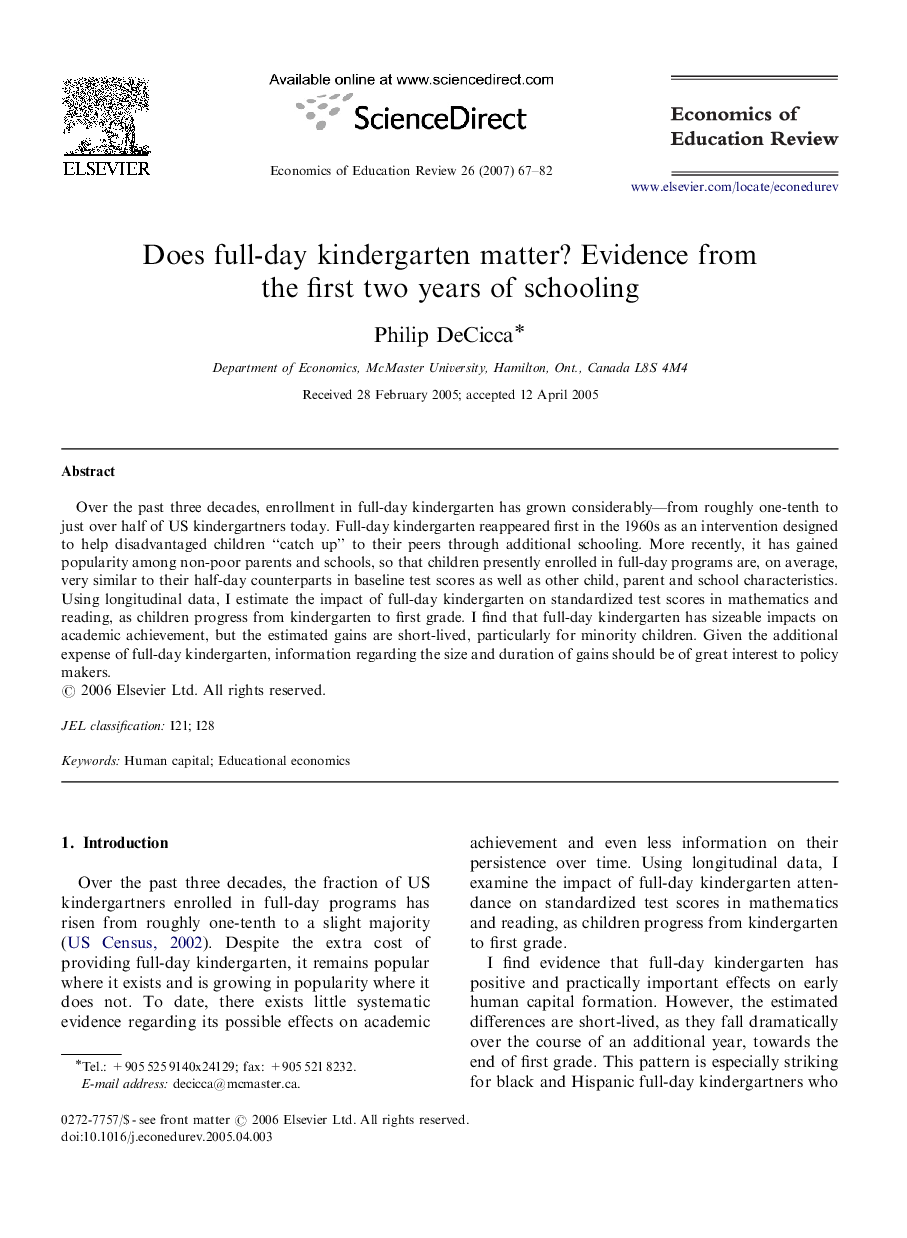| کد مقاله | کد نشریه | سال انتشار | مقاله انگلیسی | نسخه تمام متن |
|---|---|---|---|---|
| 355038 | 1434867 | 2007 | 16 صفحه PDF | دانلود رایگان |

Over the past three decades, enrollment in full-day kindergarten has grown considerably—from roughly one-tenth to just over half of US kindergartners today. Full-day kindergarten reappeared first in the 1960s as an intervention designed to help disadvantaged children “catch up” to their peers through additional schooling. More recently, it has gained popularity among non-poor parents and schools, so that children presently enrolled in full-day programs are, on average, very similar to their half-day counterparts in baseline test scores as well as other child, parent and school characteristics. Using longitudinal data, I estimate the impact of full-day kindergarten on standardized test scores in mathematics and reading, as children progress from kindergarten to first grade. I find that full-day kindergarten has sizeable impacts on academic achievement, but the estimated gains are short-lived, particularly for minority children. Given the additional expense of full-day kindergarten, information regarding the size and duration of gains should be of great interest to policy makers.
Journal: Economics of Education Review - Volume 26, Issue 1, February 2007, Pages 67–82